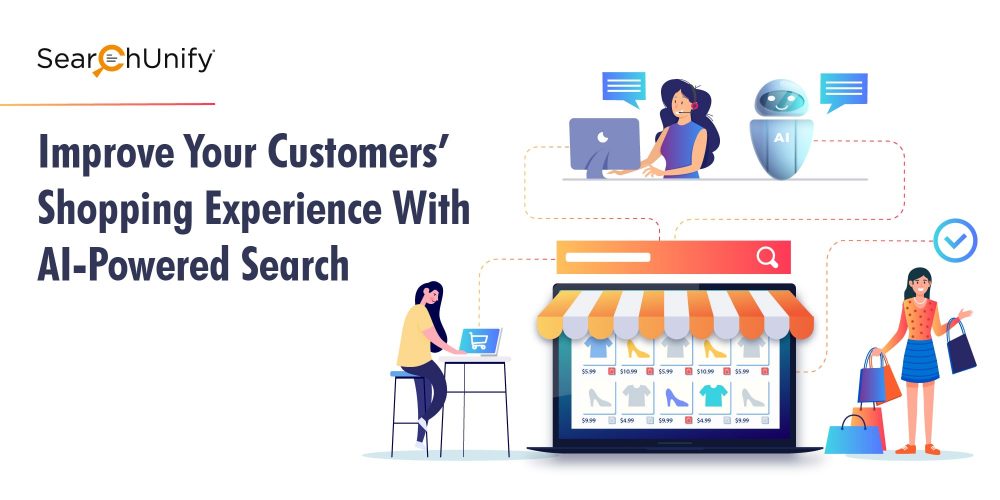
Digital age has, long ago, crushed traditional offline retail and established eCommerce as the preferred mode of shopping. With worldwide online spending predicted to pass $4 trillion this year, established players are now fighting tooth and nail to attract new customers as well as retain the old ones by providing a better experience.
To accomplish that, eCommerce firms must go above and beyond what modern customers expect or are accustomed to when they login to the portal.
What Folks Want
Customer expectations have burgeoned in recent years. Apart from the basic things like frictionless webrooming experience, flexible payment options, people prefer a treatment that delights and surprises them at all levels – from searching for a product, adding it to cart and taking its delivery. What the new-age customer wants from online shopping is summarized below:
- Individualized suggestions that are tailor-made for them. It annoys them when they are displayed products that have little to no relevance to their search or purchase history.
- Real-time help & guidance when stuck in mobile apps and a quick fix to their problem.
- Enhanced discovery experience that is several paces ahead and proactively recommends items they might be interested in before they start looking.
Now, if you add “how-to” in front of all the three points (which I think most of you probably will) all the questions can be answered with a single word – SEARCH. And not just any search, but a smart search that provides the best customer experience possible. And since that is holding all the chips, let’s get to it.
Welcome the Game Changer – Cognitive Search
Search, today, has transcended the limitations of the little box the eCommerce sites have and evolved into more of a medium that propels better product discovery. And the quickest, most efficient way to harness that medium is with AI. Here’s how AI-powered search helps:
- 1. Allows Users to Find Relevant Products From the Database
Cognitive search is able to index multiple product specifications from different data fields easily and provide more relevant search results. It uses powerful AI-based algorithms to understand product descriptions, features, and specifications, and then delivers relevant items for every search, hence, creating a great search experience.Cognitive engines can be implemented across different customer touchpoints, such as mobile apps and emails, to monitor these channels, boost relevancy & deliver a more comprehensible experience to end-users. What’s more appealing about cognitive engines is that the ML feature continuously learns from every customer interaction and keeps improving the same over time.
- 2. Personalizes & Predicts to Keep ‘Em Hooked
Customers are driven by brands that truly understand and emotionally connect with them. And there is no better way to prove that than by showing personalized content. For instance, if someone is looking for a laptop and doesn’t buy it, you can notify them about any flash sales for the same. This is a very basic level of personalization that has become the norm.But a cognitive search engine can take it up a notch and hyper-personalizes the user experience by analyzing behavioral data to predict the kind of products the customers will like and presenting them the same in form of proactive “You may also like” recommendations. It’s kind of like employing a shopping assistant for your customers. Smart engines also come with facets that help filter search results to better categorize available products which further improves customer experience.
- 3. Identifies Trends for Continuous Optimization
Jack Welch said, “An organization’s ability to learn, and translate that learning into action rapidly, is the ultimate competitive advantage.” And the best way to learn is by closely monitoring the analytics.Here’s a fun fact for you: cognitive search is also known as insight engine. And for a good reason. It provides full-fledged, user-friendly reports that detail add-to-cart conversion rate, average order values and click-through rates that help identify stellar and lackluster performance. This gives you a better perspective of what works and an opportunity to improve your cart abandonment rate significantly. This also empowers you to hit the sales mark with your best-selling items.
Need help with choosing the right search platform for your e-store?
This is just the tip of the iceberg, you can even train ML-based features of cognitive engines to improve customer interactions. Needless to say, it has become absolutely necessary to have some form of AI to keep up with customer demands in online retail. But as more and more competition clamors to go the AI way, it’s equally important that you choose a cognitive search platform for your organization after careful consideration and study.
Here’s a guide to help you make an informed decision in choosing a cognitive engine. Link to eBook.













